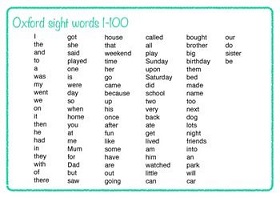Your cart is currently empty!

Oxford Wordlists, Post
Oxford Wordlists
What Are The Oxford Wordlists? Wordlists is used as a compound word, probably for commercial reasons. These lists are the outcome of research commissioned by the Oxford University Press since 2007. The research was carried out in two stages and is ongoing and subject to revision. The latest study was in 2017.
What Is Oxford University Press? Speaking with parents it seems that many are in awe of the “Oxford”. They don’t realise that OUP is a commercial publisher. The OUP grew out of Oxford University when Caxton first brought his printing press to England in the 15th century. OUP set up in Australia in 1908. We do not have an Oxford University in Australia.
Oxford University Press paid for the research.
>>OUP is a division of Oxford University.
>>The research has been carried out in Australia.
>>The Oxford Wordlists have been compiled based on the frequency of use. They reflect how often children in Australia use words in their free writing.
>>The words are listed from highest frequency downwards.
OUP (Australia) is a commercial organisation. There have been many commercial products published in Australia that come from this research. It is profit based with links to research in universities. OUP aspires to the highest standards.
What are the research conclusions? The conclusions are interesting (see below). They confirm what many educators suspected. For that reason the research is valuable because it gives a firm foundation to teachers’ observations and experience.
There are slight changes from study to study. The latest additions are super, awesome, amazing, crazy and stuff. All are perfectly reasonable words to include.
Using The Oxford Wordlists: Because these lists are drawn from what children are writing, there are no question words in the first 100 words, except the word what which is often used without being part of a question. The word there appears also, but where – being a question word – does not.
Links: 100 Sight Words, Post, Bee’s Knees Reading Method
Should children be able to write these question words? when, where, what, why, who, which — all of these words except what appear much further down the lists? These lists are not based on what children need to read, but only on what they are writing. These question words appear in the 100 Sight Words that have been in use for decades.
What is missing in the research? It would be good for teachers to know which words children were not spelling correctly – even as a percentage. And what words children should have been able to spell and were not. This could be informative.
Research reveals:
- The Oxford Wordlists reflect back to teachers what words children are writing.
- The research informs us that adverbs and conjunctions are absent.
- It informs us that children are using general verbs and are not using specific verbs.
- The Oxford Wordlists have a lot of verbs presented in the simple past tense and the present participle. The researchers, in their report, urge schools to use these lists as spelling and reference lists.
Recommendations:
The researchers recommend that teachers teach more specific verbs
teach adverbs and conjunctions, and
teach the formation of verbs.
Conclusions: So,
- if teachers are to teach more in these areas, they can return to the older lists.
- Teachers can collect adverbs and conjunctions from reading activities. [More work!]
If this is what teachers need to do, the Oxford Wordlists don’t help in the early grades.
And further,
- if children are given words in their spelling lists, they will use them;
- if children are taught about conjunctions and verb tenses they will also use them.
Time will tell if the schools now using the Oxford Wordlists perform better in literacy. Reflecting back to educators what children are already writing does not appear to contribute much to classroom education. We have known for a long, long time that Prep and Grade 1 students use the word because but can’t spell it correctly. I still believe that this 7-letter word should not be on the Prep and Grade 1 spelling lists.
Fair use/dealing claimed on illustrations.